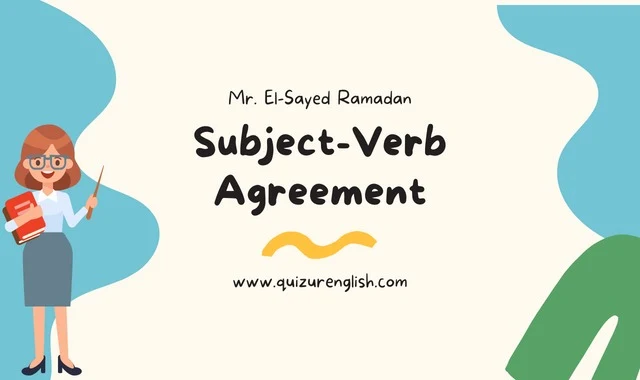Subject-Verb Agreement
In this workshop, you will focus on the following objective:
Grammar:
A verb is the action word in a sentence, and the subject is who or what performs the action. Subject-verb agreement occurs when the subject and verb match in person and number.
Grammar:
- Understanding how to correct subject-verb agreement.
Subject-Verb Agreement
Subjects and Verbs
A verb is the action word in a sentence, and the subject is who or what performs the action. Subject-verb agreement occurs when the subject and verb match in person and number.
Literature Connection
In every sentence, the verb (or action word) must agree with the subject (or actor) in both person and number. In the sentence below, although the subject, barracks, looks plural, it functions as a unit and takes the singular auxiliary verb was.
“Each barracks was divided into six units, sixteen by twenty feet, about the size of a living room. . . .”
—Jeanne Wakatsuki Houston and James D. Houston, from “Farewell to Manzanar”
Examples:
- With a compound subject that is joined by and . . .
Use a singular verb if the parts of the subject make up a single unit.
Rice and fruit is an unheard-of combination to the Japanese.
Use a plural verb if the parts of the subject are not considered a unit.
The neighborhood bully and his friend were frightening. - With a compound subject that is joined by or or nor . . .
Use a verb that agrees with the subject closest to it.
Either their homework or their chores keep the children inside.
Neither below-zero temperatures nor a blizzard prevents him from sledding. - With a subject that is a collective noun . . .
Use a singular verb if the noun refers to a group as a whole.
The committee has to come to a decision by noon.
Select the verb that agrees with its subject.
Tags
Grammar Workshops

